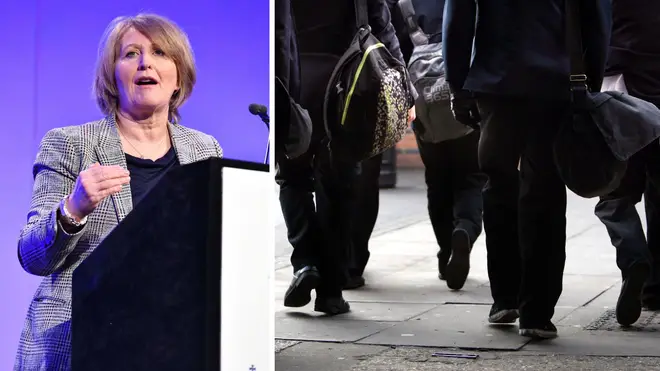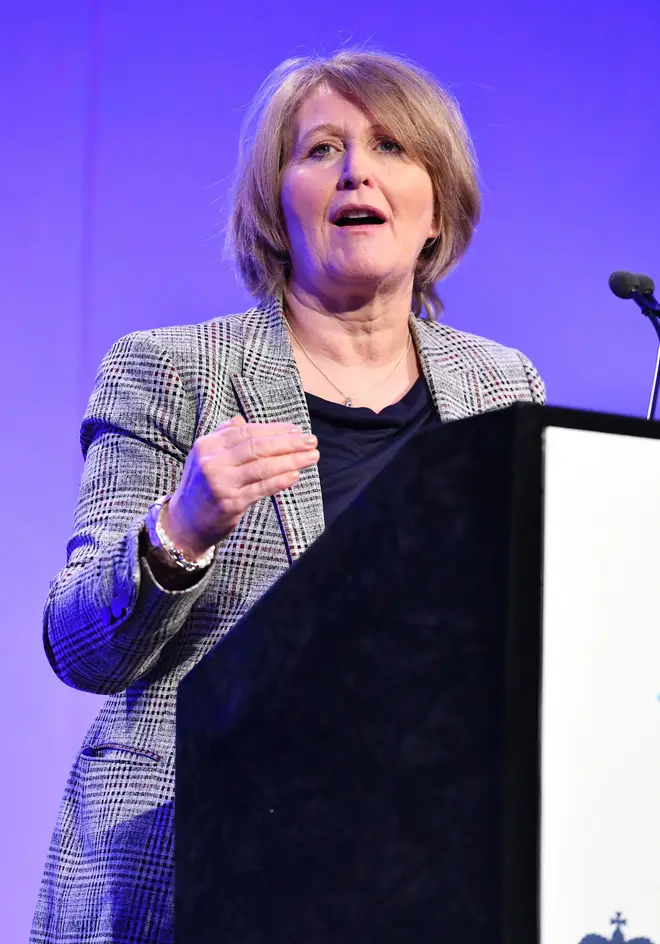
Simon Marks 4pm - 7pm
4 November 2022, 08:13

Children as young as nine are being made to run drugs for gangs and young teenagers are leading county lines operations, it’s been warned.
Anne Longfield, the children's commissioner, said the exploitation of Britain's youth should be taken as seriously as terrorism.
Her report, Hidden in Plain Sight, said Covid, the cost of living crisis and a return to austerity would help criminals exploit children, viewing them as the "commodity of choice"
Younger children and kids from middle class backgrounds in “leafy suburbs” are increasingly being targeted on social media.
People as young as nine or 10 are being made to run drugs, and 14-year-olds have been known to be leading county lines.
"I think sadly, I've been told more and more about the 14-year-olds - even a 13-year-old I've heard of - as being involved in that role in a county line,” Ms Longfield said.

"So I think that is a new development after Covid, and what people say is that while the market was suppressed during the pandemic, actually when it opened up those that were targeting young people went for a younger group of kids to do so, which is horrific - these are children."
"Unthinkable" scenarios like grandmothers having to carry drugs to protect children have also emerged.
Government figures for child criminal exploitation from 2021 and 2022 show 11,600 instances where gangs were involved and 10,140 instances where it was a factor in assessments of children in need.
The Commission on Young Lives, which Ms Longfield heads up, reckons this is the tip of the iceberg and potentially 200,000 children aged between 11 and 17 are vulnerable to serious violence – with teenagers brought up in poverty and those from minority backgrounds especially at risk.
Ms Longfield said: "We know that families who have very little at home, that young people will know that, that they'll feel that responsibility to bring in money if they can.

"So we're seeing kids being put in a really, really difficult position where they want to do things to help their family, they want to be able to help financially if they can, and seeing an opportunity to do so - that is adding to the pressure.
"But we're also seeing that exploiters know that - again, no opportunity is ever missed for these people - they know that kids are going to be more open and susceptible to the idea that there's money to be made, and that's something which they are exploiting ruthlessly."
The commission said it "lost count" of how many times it was told a teenager will go to prison or die in three years, and Ms Longfield added: "If it's so clear that everyone knows it will happen, how can we stand by and watch it play out?"
She went on: "I do think this is a threat, not only to the nation's productivity but also our security, and with that threat, I think Government should be treating this as such, holding the kind of high-level meetings that we see in emergencies of Cobra, and pulling together a strategy across government to really intervene and fight back.
It recommends a "Sure Start Plus" for teenagers, financed by proceeds recovered from crime, and improved health, education and mental health support.
Schools should also stay open in the evenings and at weekends, funded by levies on social media companies, phone providers and dormant bank accounts.
Sir Peter Wanless, NSPCC chief executive, said: "The reality is this troubling situation could deteriorate further unless our political leaders confront the multitude of problems that are leaving young people at serious risk of criminal and sexual exploitation."
A Department for Education spokesperson said: "We are investing more than £1 billion to improve early help services, through a network of Family Hubs, programmes supporting thousands of families to stay together safely, support with their mental health and providing healthy food and activities during the school holidays.
"We are also strengthening the links between social care and education and providing targeted support to keep children most at risk of exploitation engaged in their education."